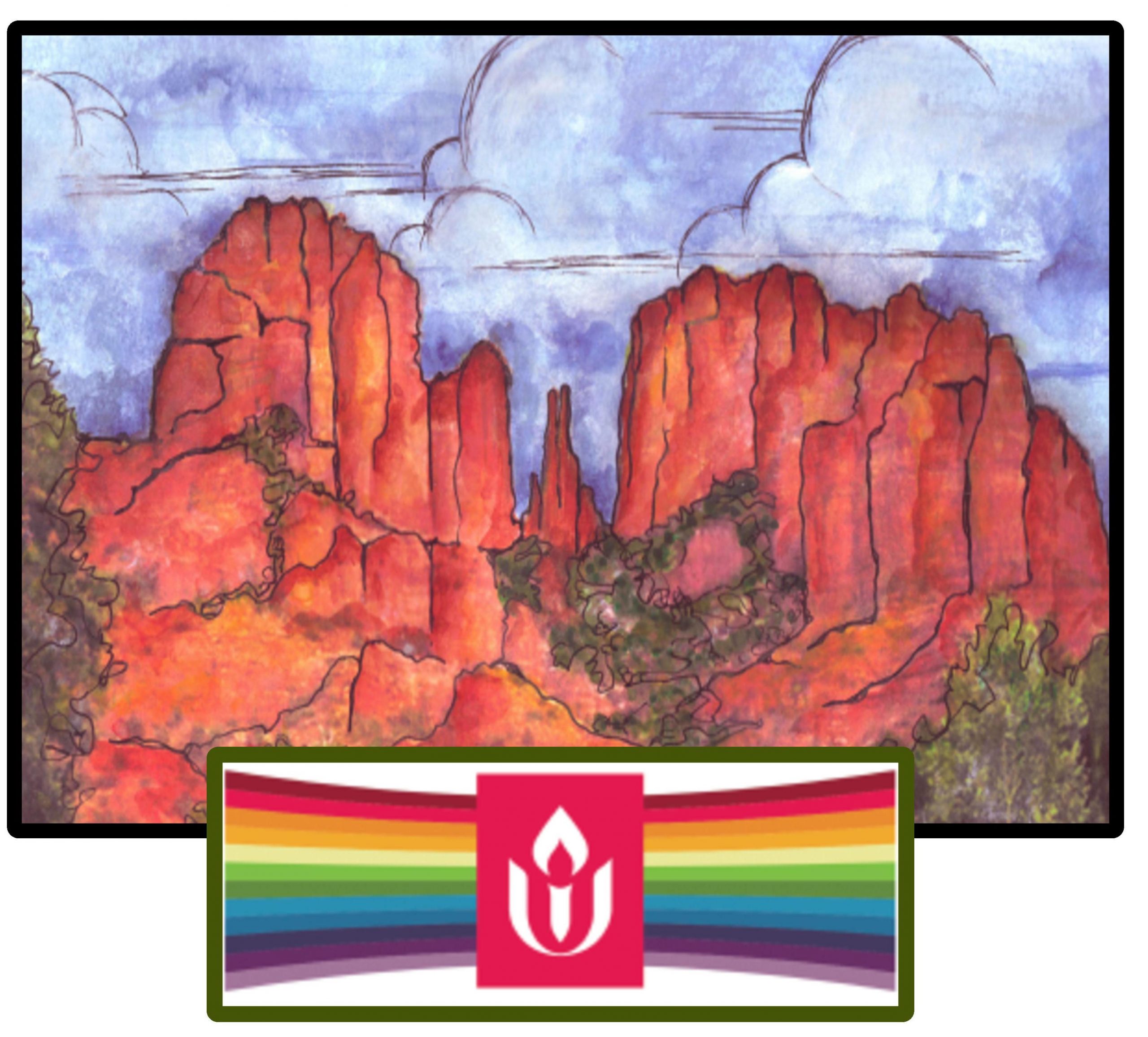Unitarian Integrity [#102]
People new to the Sedona Unitarian Universalist Fellowship often remark about the integrity of its members. When Peter Van de Bogert thinks back to the dimly lit interior and thick stained-glass windows of his childhood church in Maine, he recalls that his parents’ infrequent Sunday attendance contrasted sharply with their message that church was important. … Continue reading Unitarian Integrity [#102]
